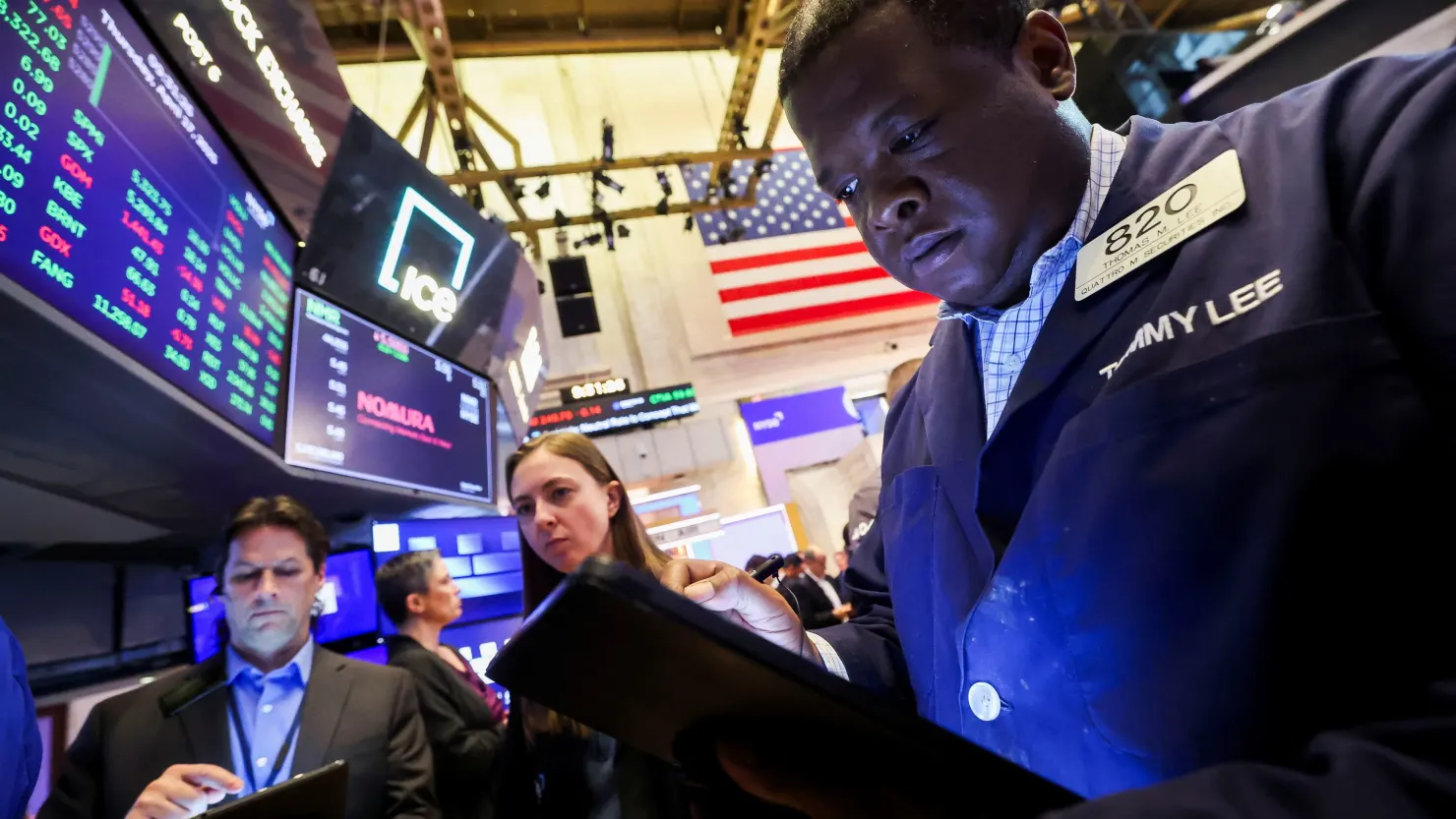Stocks fell again on Monday following yet another negative trading week for Wall Street, as investors receive little signs of progress on global trade talks.
The Dow Jones Industrial Average traded 366 points lower, or 0.9%. The S&P 500 shed 1.1%, and the Nasdaq Composite lost 1.4%.
The moves come after each of the three major averages logged a third weekly decline in the last four trading weeks. While the S&P 500 closed out Thursday’s session higher, the broad market index still finished the holiday-shortened week 1.5% lower. The Dow Jones Industrial Average and Nasdaq Composite posted their third consecutive losing session, each finishing the week with a more than 2% pullback for the four-day period.
U.S. markets were closed on Friday in observance of Good Friday.
Heightened concern surrounding President Donald Trump’s tariffs have weighed on Wall Street recently. The major averages are down around 7% since April 2, when Trump announced a raft of levies on imports from other countries.
Over the weekend, Chicago Federal Reserve President Austan Goolsbee said in a CBS interview that the tariffs could lead U.S. economic activity to “fall off” by the summer. That follows Fed Chair Jerome Powell expressing concern Wednesday that the president’s levies could present difficulty for the central bank in controlling inflation and spurring economic growth.
Questions around the Fed’s independence have also hurt stocks. Trump on Thursday called on the Fed to cut interest rates, even hinting at Powell’s “termination.” On Friday, White House economic advisor Kevin Hassett said that the president and his team were studying whether firing Powell was an option.
Investors are dealing with “with a fresh source of macro anxiety: Trump’s threats to Fed independence,” wrote Adam Crisafulli of Vital Knowledge. “This threat is related to Trump’s trade war as Powell and his colleagues are forced to stay on the sidelines due to the prospect of a tariff-induced inflation spike over the coming months despite recent market volatility and rising downside growth risks.”
There was no news of progress on any trade deals over the weekend, hurting investor confidence as Monday trading kicked off. If anything, tensions seemed to increase with China with the country warning other nations not to strike any deal with the U.S. that would hurt China.
“The concurrent slump in stocks, the USD, and Treasuries suggests Trump’s trade war has set in motion an exodus from American financial assets that no amount of negotiating can reverse,” Crisafulli wrote.
The dollar index dropped more than 1% to 98.13. That move sent gold prices to fresh record highs. Futures tied to the precious metal were up 2.4% above $3,400 per ounce.
A nearly 6% decline in Nvidia last week also put pressure on the broader market. The artificial intelligence darling disclosed Tuesday that it will record a quarterly charge of about $5.5 billion due to controls around exporting its

